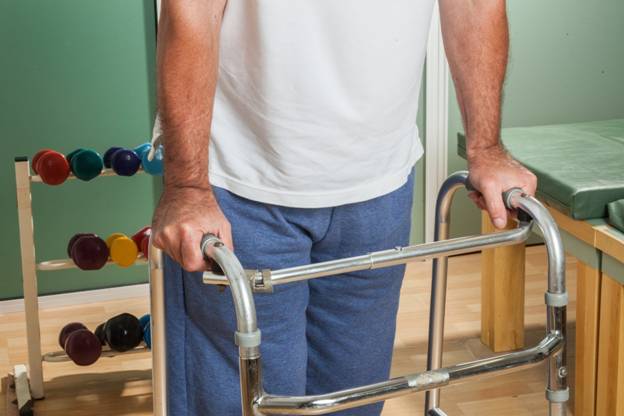Are you concerned that your budget can’t accommodate the cost of equipment necessary for proper treatment? Do you think that buying equipment is the only option available? Then, look into medical equipment rentals.
After all, they can be a great solution in many situations. Still not convinced? Then read on.
In this article, we’ll discuss some reasons to choose medical equipment rentals instead of buying them. That way, you can be sure that the decision is right for you.
Read on to learn more.
1. What is Medical Equipment Rental?
Medical equipment rental is a service that involves the temporary provision of medical devices or equipment to patients who need them for a specific period. It is an alternative to purchasing costly equipment that may only be needed temporarily.
This service allows individuals to access the necessary equipment without the long-term commitment and financial burden of ownership. Medical equipment rentals are typically offered by the following:
- Specialized rental companies
- Hospitals
- Healthcare providers
2. Types of Medical Equipment Available for Rental
A wide range of medical equipment is available for rental to cater to various medical conditions and needs. Some of the commonly rented equipment includes:
Wheelchairs
Wheelchairs are essential for individuals with mobility issues or those recovering from surgeries or injuries. They come in different models, including manual and electric-powered options.
Hospital Beds
Hospital beds designed for home use offer comfort and convenience to patients requiring extended care. These beds often have adjustable features for better positioning and support.
Oxygen Concentrators
Oxygen concentrators provide a steady supply of oxygen to individuals with respiratory conditions, such as chronic obstructive pulmonary disease (COPD) or severe asthma. They are commonly used at home to help patients maintain adequate oxygen levels.
Ventilators
Ventilators are critical for patients with severe respiratory problems. They provide mechanical support for breathing and may be rented during the recovery phase for conditions like acute respiratory distress syndrome (ARDS).
Crutches and Walkers
Crutches and walkers assist individuals in walking and maintaining balance while recovering from injuries, surgeries, or mobility issues. They provide stability and reduce the risk of falls.
Breast Pumps
Breast pumps are often rented by new mothers who need to express breast milk for their babies. They come in manual and electric models. They are crucial for breastfeeding mothers who may be separated from their infants or need to build a milk supply.
Nebulizers
Nebulizers are devices used to deliver medication in the form of a mist, which can be inhaled into the lungs. They are commonly used to treat respiratory conditions like asthma and COPD.
Orthopedic Braces and Supports
These devices are designed to aid in the recovery and stabilization of injured joints and limbs. They provide support, reduce pain, and promote proper healing.
Home Dialysis Machines
Patients with kidney conditions may require dialysis equipment for home-based treatment. These machines allow patients to perform peritoneal dialysis or hemodialysis at home under medical supervision.
Continuous Positive Airway Pressure (CPAP) Machines
CPAP machines are prescribed to individuals with sleep apnea to improve breathing during sleep. They deliver a continuous stream of air to keep the airway open. It prevents pauses in breathing that characterize sleep apnea.
3. Prescription and Medical Evaluation
Before renting medical equipment, a prescription from a healthcare provider is often required. This prescription ensures that the equipment is appropriate for the patient’s specific medical condition and needs.
Additionally, some equipment, like CPAP machines and ventilators, may require a medical evaluation. The evaluation determines the correct settings and adjustments for optimal effectiveness and safety.
Obtaining the prescription and evaluation is essential to ensure that you receive the right equipment. I also ensure that it is used safely and effectively.
4. Duration of Rental
The duration of a medical equipment rental can vary widely, depending on the patient’s needs. Rental periods can range from as short as a few days to several weeks or even several months. The specific rental duration is typically determined based on the following:
- Patient’s medical condition
- Treatment plan
- Expected length of need
It’s crucial to discuss the expected duration with your healthcare provider and rental company. This ensures that the rental period aligns with your treatment plan.
5. Insurance Coverage
Many health insurance plans may cover the cost of medical equipment rentals when deemed necessary. However, coverage can vary, and certain conditions may need to be met for reimbursement. It’s essential to check with your insurance provider to understand your coverage and any associated costs.
If your insurance does cover rentals, make sure to follow the necessary procedures to ensure that your claim is processed correctly.
6. Maintenance and Cleaning
Proper maintenance and cleaning of rented medical equipment are essential to ensure its functionality and hygiene. Neglecting maintenance can compromise the effectiveness and safety of the equipment. It can also result in additional charges or fees from the rental company.
Rental companies often provide guidelines on how to clean and care for the equipment. This may include instructions on the following:
- Cleaning
- Sanitizing
- Appropriate Equipment Storage
Following these guidelines is essential for your safety and the longevity of the equipment.
7. Delivery and Setup
Most medical equipment rental companies offer delivery and setup services as part of their offerings. This service can be particularly valuable, especially for complex equipment like ventilators or hospital beds. When you rent equipment, the rental company will schedule a delivery time and bring the equipment to your home or healthcare facility.
During the delivery, the rental company’s technicians will set up the equipment and ensure that it is functioning correctly. They will also provide instructions on how to use and maintain the equipment properly.
8. Return and Pickup
When the rental period expires or the equipment is no longer needed, the rental company will arrange for pickup. It’s essential to schedule the return in advance to ensure a smooth transition. When returning the equipment, it’s crucial to ensure that it is in the same condition as when it was delivered.
Failure to return the equipment in good condition may result in additional charges or fees. It’s essential to handle it with care during the rental period.
9. Costs and Fees
When considering medical equipment rentals, understanding the costs and potential fees associated with the process is crucial for budgeting and making informed decisions. Here, we’ll delve deeper into the various factors that can impact the costs of renting medical equipment. We will also highlight potential fees that you should be aware of.
Type of Equipment
The specific medical equipment you need will be one of the primary factors influencing the rental cost. Basic equipment like standard wheelchairs may have lower daily or weekly rates compared to more specialized and complex devices like home ventilators or hospital beds.
Duration of Rental
The rental period significantly impacts the overall cost. Rental companies often offer daily, weekly, or monthly rates. Generally, longer rental periods are more cost-effective on a daily basis. However, you should choose a duration that aligns with your medical needs to avoid unnecessary expenses.
Insurance Coverage
Your health insurance plays a critical role in determining your out-of-pocket expenses. Some insurance plans may cover the cost of medical equipment rentals when prescribed by a healthcare provider. If you have insurance coverage, be sure to understand your policy’s terms, such as copayments or deductibles.
Location
Rental rates can vary by location. It may also be influenced by local market conditions, demand, and competition among rental providers. It’s worth comparing prices from different rental companies in your area to find the most competitive rates.
10. Choosing a Reliable Rental Provider
Selecting a reputable and accredited medical equipment rental provider is crucial to ensure the quality of the equipment and the reliability of their services. Here are some tips for choosing the right rental provider:
Research and Read Reviews
Take the time to research different rental companies and read reviews from other customers. This can give you insights into the quality of their equipment and customer service.
Consult with Your Healthcare Provider
Your healthcare provider can often recommend reputable rental companies that they have worked with in the past. They can provide valuable guidance on selecting the right equipment and rental provider for your specific needs.
Verify Accreditation
Check if the rental provider is accredited by relevant healthcare organizations or regulatory bodies. Accreditation can be a sign of quality and adherence to industry standards.
Ask About Availability and Support
Ensure that the rental provider has the equipment you need in stock. Ask if they can provide timely delivery and support if issues arise during the rental period. For equipment related to nurse medication administration, confirm that they offer the necessary training and support for safe and effective use.
Learn About Medical Equipment Rentals
Renting medical equipment is a smart choice. It’s affordable, with a wide range of devices available. You can choose rental terms that suit your needs.
Maintenance, insurance, and guidance are often included. Plus, it’s an eco-friendly option, reducing waste. Renting allows you to ‘test drive’ before committing.
Overall, medical equipment rentals are a convenient and sensible way to get the equipment you need. We have plenty of informative articles available to you throughout our site. Check them out!









